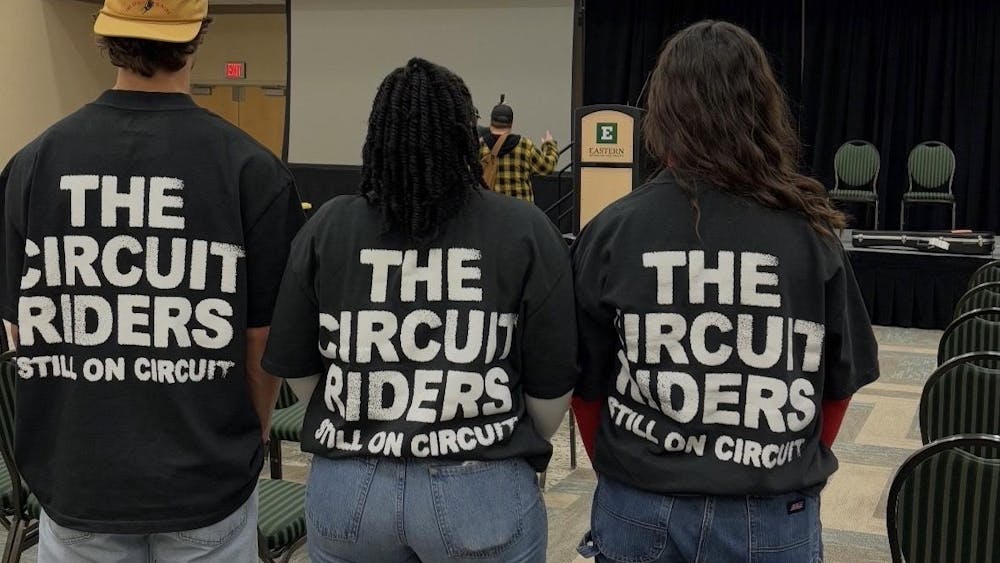In the wake of revelations about Louisiana Rep. Steve Scalise’s 2002 speech to the “European-American Unity and Rights Organization,” LA Times contributor Michael McGough tackled not the organization of obvious ill repute, but the theory behind ethnic and racial groups. Unfortunately, many of McGough’s criticisms threw the baby out with the bathwater.
“[A]n organization,” McGough wrote, “dedicated to the celebration of ‘European American culture’ might be a benign exercise in ethnic affirmation [but] America’s history of white supremacy” casts the prospects for such a benign organization into “some parallel universe;” In short, history forbids it.
“White nationalists,” he continues, “can argue that they’re simply lifting a page from the identity-politics playbook of other racial and ethnic groups. . . [but] the problem is explaining why we accept some kinds of. . . self-consciousness and solidarity and reject others.”
Deciphering McGough’s invocation of the amorphous “we,” his argument seems to be that the problem with consistency is explaining the inconsistencies - circular reasoning par excellence.
One may hope that such false dilemmas about applying the Golden Rule are becoming a thing of the past. Judging by Jamelle Bouies’s op-ed ‘Why Do Millennials Not Understand Racism?’ in Slate magazine- it is. Bouies appeared less than thrilled at this development.
“Millennials,” wrote Bouies, “‘believe in equality’ and believe ‘everyone should be treated equally’. . . ” regardless of race and “profess a deeper commitment to equality and fairness. . . [but] they’re committed to an ideal of colorblindness that leaves them uncomfortable with race. . . and a bit confused about what racism is.”(Emphasis in the original). “[R]acism” Bouie continues, “isn’t reducible to ‘different treatment.’ . . . No, racism is better understood as white supremacy - anything that furthers a broad hierarchy of racist inequity, where whites possess the greatest share of power, respect, and resources, and blacks the least.”
Racism is white supremacy? I guess it depends on what your definition “racism,” “is,” “white” and “supremacy” is. If racism, as Bouie defines it, is what my fellow Millennials don’t understand then Mr. Bouie is the bearer of glad tidings.
McGough is barking up the wrong tree - Bouie is redefining “tree” - when he says that American history forbids whites from, as he puts it, “a benign exercise in ethnic affirmation.”
Historian Thomas Sowell wrote in his 2005 work Black Rednecks and White Liberals, that it is easy to discover “the incredibly lopsided coverage of slavery in the United States . . . as compared to the meager writings on the even larger number of Africans enslaved in the Islamic countries of the Middle East.” (Emphasis in the original)“At least a million Europeans were enslaved by North African pirates alone from 1500 to 1800, and some European slaves were still being sold in Egypt, years after the Emancipation Proclamation. . . ”
No other historical horror, wrote Sowell, “is so narrowly construed.” But colonialism comes close.
“I don’t deny the crimes of colonialism,” said British journalist Douglas Murray, “[but] how long do former colonial countries have to be punished for? . . . One of the largest and most significant and longest colonial powers in history was the Turkish Empire. Do we do this to Turkey? Almost every single people in the world has done something at some point historically they could be punished for.” Not just Europeans.
It is absurd, McGough wrote, “for anyone - black or white - to be uplifted by the achievements of people who looked like them,” but America’s history of slavery - as well as Europe history of colonialism - consigns “a benign exercise in ethnic affirmation. . . [to] some parallel universe.” If it is absurd to take pride in the accomplishments of people who looked like you, is it not just as absurd to be ashamed of the crimes which were committed by people who looked like you?
Millennials don’t understand racism, bemoans Bouie; the problem with consistency is explaining inconsistency, mourns McGough. Millennials are far better off understanding the Golden Rule.








